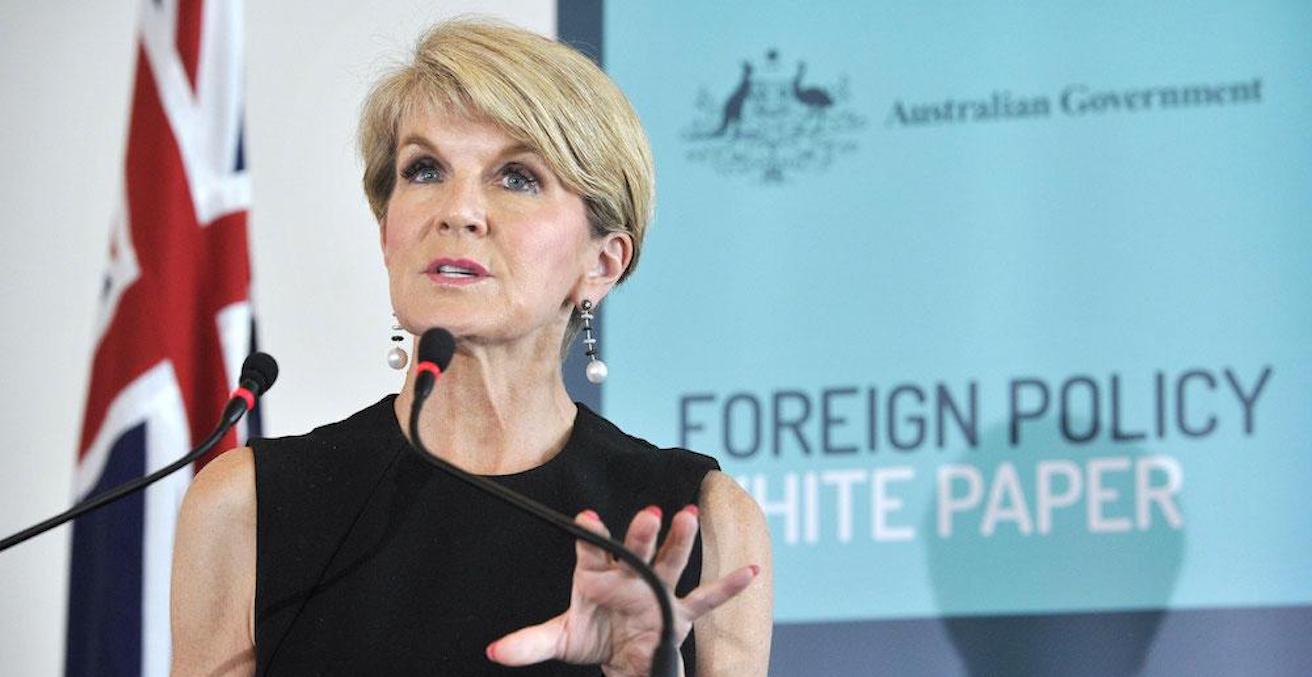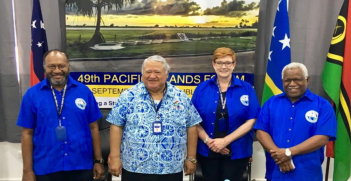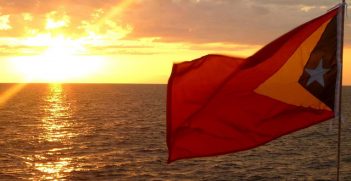The Foreign Policy White Paper: Now What?

Last year’s Foreign Policy White Paper provides a sensible basis on which Australia can continue to pursue a realistically independent Australian foreign policy. Continued bipartisan support will retain its value as a guiding framework.
The cover of the first issue last year of the Australian magazine Foreign Affairs had a caption, “Towards an Independent Foreign Policy.” The fact that Australian governments have persistently supported the alliance with the United States and that Australia retains historical and institutional links with western civilisation, taking both of those factors into account in the conduct of its foreign policy, has persistently been used to claim Australia lacks an independent foreign policy.
People making such claims seem to be in denial about the changes in Australia over the past 45 years. Australian society is so very different ethnically, socially and politically than the Menzies era in which I grew up. Perhaps it is easier to advocate further change by claiming we still cling too strongly to our “Britishness” or that our independence and identity is overwhelmed in an alliance. But Australia is no longer just a transplanted vestige of British colonialism. Australian society has changed hugely, we have no forelocks left to tug. Australia will continue to evolve independently in tune with our demographic constituency and our material circumstances.
As for an independent foreign policy, in so far as any middle power can conduct a foreign policy which will not be influenced by the wishes of others and the flow of forces around us, the fact is our decisions are made in Canberra rather than London, Washington or Beijing. Was it the act of an alliance vassal to defy the United States by deciding our interests and those of the region would be better served by Australia joining the Chinese-sponsored Asian Infrastructure Investment Bank? Or working with Japan and other partners to revive the Trans-Pacific Partnership after President Trump abandoned it in a return to protectionism? Or not rushing in to sign up to the Belt and Road Initiative until we have had a chance to evaluate on a case by case basis the merits of Australian participation in particular projects. Indeed, was it not an act of independence for the Government to seek to ban foreign interference from any source into Australian democratic political processes and internal affairs?
The Foreign Policy White Paper is in itself a demonstration of independence: a realistic, homegrown assessment of Australian interests and an Australian framework for advancing them. It provides a sensible basis on which Australia can continue to pursue a realistically independent Australian foreign policy.
Now What?
Foreign policy depends on domestic policy. They are interdependent. Successful pursuit of Australia’s international interests within the White Paper framework will be conditioned by the strength and efficiency of our economy, by the capacity of governments to take sometimes unpopular but necessary decisions, by our ability to protect our critical internal assets from deterioration or disruption (including through cyber means), a willingness to commit resources to the pursuit of our foreign policy, bipartisan political support for necessary measures and, ultimately, support from the Australian public.
The arguments for reform to produce a stronger economy have a logic of their own. Given the international nature of the Australian economy, any domestic reform that assists us to interact more profitably with the outside world is to be encouraged.
There has been a fair measure of bipartisan support for Australian foreign policy over the years, and the Labor Party has endorsed the thrust of this White Paper. This is positive: a bipartisan approach to foreign policy makes for better foreign policy implementation. Domestic political scrapping and ill-chosen remarks made for partisan political purposes can be exploited to our disadvantage overseas.
Bipartisanship is important for another reason. It may be too much to argue that Western democracies are currently experiencing a crisis of confidence, but phenomena such as social media, populism, globalisation, social fragmentation and disenchantment with political behaviour have made decisive democratic leadership harder. Our political leaders are bombarded with views and opinions, courtesy of the Internet and social media, in which each idea and each special interest is given equal weight and volume. The Internet, which gave us the “Democratisation of Information” has now given us the “Democratisation of Disinformation”. As we have learned over the past year or so, deliberate malicious information campaigns can be disruptive of confidence in our leaders and even of confidence in our democracy itself. Our political leaders have to fight their way through cacophony to reach sensible decisions. It is to be hoped the White Paper will provide strong reference points for that fight in the foreign policy arena.
Of course, the White Paper has attracted the usual range of comments, both supportive and adverse. Some single-issue groups are unhappy it did not pay enough attention to their key concerns. Aid lobbyists, for example, have complained the White Paper did not go far enough towards meeting their interpretation of Australia’s development assistance and humanitarian obligations. The environmental lobby would like to see more decisive action on greenhouse gases. And there are also those for whom the sky, or at least the US umbrella, has already fallen in meaning we must change our policy settings immediately, usually to pursue an “independent” foreign policy, but without actually defining what that means.
Ideally, a White Paper should capture the public imagination sufficiently to promote a strong national consensus on foreign policy responses. It is disappointing but perhaps unsurprising that the White Paper has not provoked much public interest. Four months after its release it is hard to find reference to in the conventional media. That does not, however, diminish its value as framework and guide for foreign policy decision-makers.
David Irvine AO was the former Director-General of Security and Director-General of the Australian Secret Intelligence Service and has 33 years of experience as a diplomat in the Australian Department of Foreign Affairs. His career includes diplomatic postings as High Commissioner to Papua New Guinea and Ambassador to the People’s Republic of China, Mongolia and the Democratic People’s Republic of Korea.
This is an extract from Mr Irvine’s speech titled “The 2017 Foreign Policy White Paper – Now What?” given at the AIIA ACT Branch Annual Dinner on 10 April 2018. The unabridged version can be accessed here.





